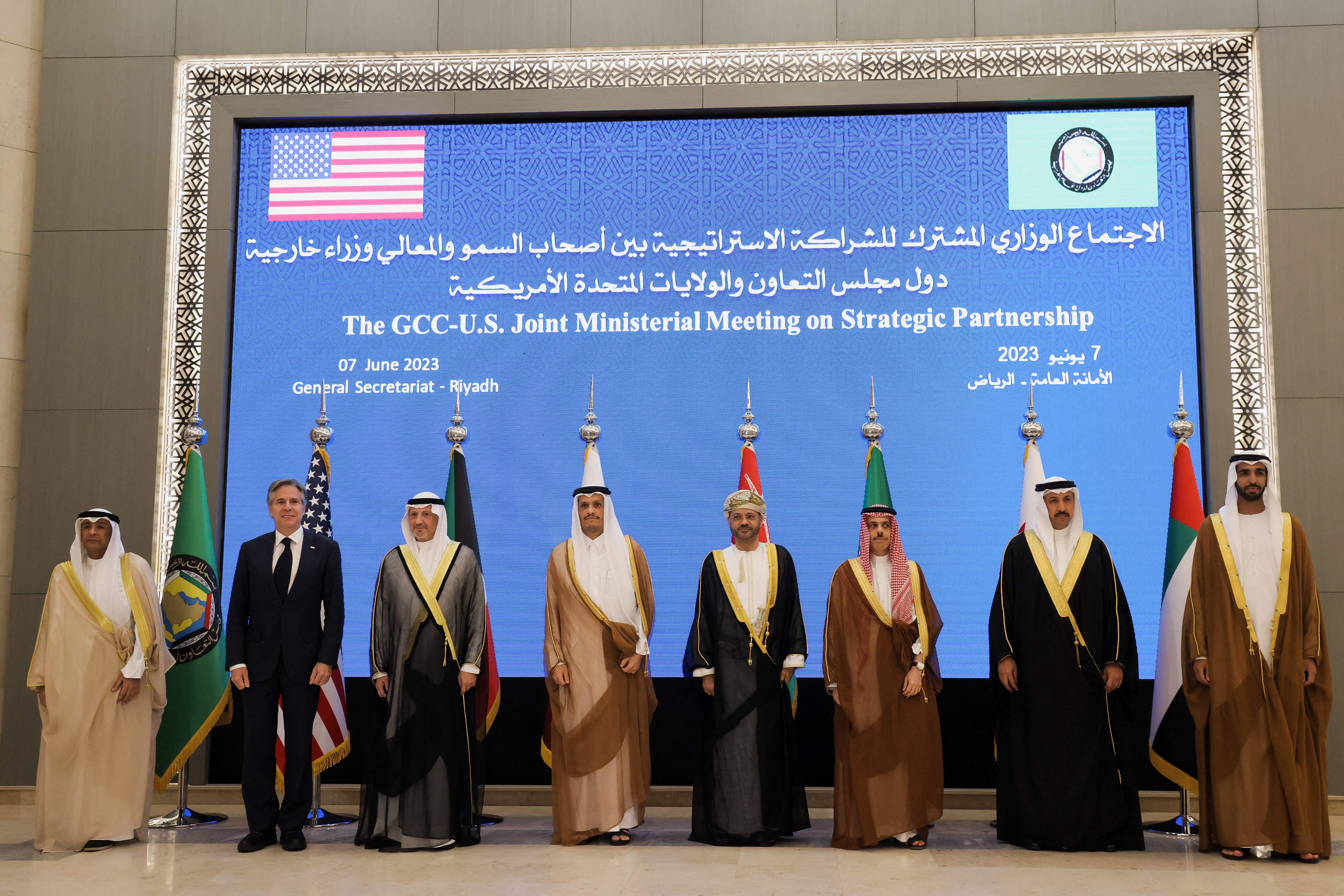As President Joe Biden approaches the three-year mark of his first term and as the next election campaign kicks off, MEI is pleased to host an expert panel offering a comprehensive assessment of the Biden administration’s approach to the broader Middle East and North Africa region (MENA).
Our panel of experts will discuss the administration's achievements, areas for improvement, comparisons with predecessors and potential shifts in U.S. MENA policy, as well as present Brian Katulis' forthcoming report. Additionally, speakers will explore how MENA policy considerations might influence the upcoming presidential election and the implications of potential second Biden administration or alternative leadership scenarios.
Speakers
Kirsten Fontenrose
President, Red Six International
Brian Katulis
Senior Fellow; Vice President of Policy, Middle East Institute
Vali Nasr
Majid Khadduri Professor, Middle East Studies and International Affairs, Johns Hopkins University - SAIS
Dennis Ross
William Davidson Distinguished Fellow, Washington Institute for Near East Policy
Paul Salem, moderator
President; CEO, Middle East Institute
Detailed Speaker Biographies
Kirsten Fontenrose, President of Red Six International, provides technical expertise to partner nations on defeating unmanned threats to citizens and infrastructure. Kirsten is a Nonresident Senior Fellow with the Atlantic Council, where she directed the Council’s Scowcroft Middle East Security Initiative. She has over 20 years of experience working with the national security apparatuses of nations in the Middle East and Africa from positions within the U.S. Department of Defense, Department of State, White House, private industry, and non-profit sector.
Brian Katulis is a senior fellow and the vice president of policy at the Middle East Institute. He was formerly a senior fellow at the Center for American Progress, where he built their Middle East program. He also works on broader issues related to U.S. national security. Katulis has conducted extensive research in countries such as Egypt, Israel, Jordan, and the Palestinian territories and his past experience includes work at the National Security Council and the U.S. Departments of State and Defense
Vali Nasr is the Majid Khadduri Professor of International Affairs and Middle East Studies at the Johns Hopkins University School of Advanced International Studies (SAIS), and a Non-Resident Senior Fellow at the Atlantic Council’s South Asia Center. He served as the eighth Dean of Johns Hopkins SAIS, between 2012 and 2019, and as the Senior Advisor to the U.S. Special Representative for Afghanistan and Pakistan, Ambassador Richard Holbrooke, between 2009 and 2011.
Ambassador Dennis Ross (ret.) is the counselor and William Davidson Distinguished Fellow at the Washington Institute for Near East Policy. His career within the foreign service spans more than two decades and three administrations. He played an instrumental role in the Middle East peace process, in both the George H. W. Bush and Bill Clinton administrations, serving as a U.S. representative during the negotiations that reached the 1995 Interim Agreement as well as in the 1997 Hebron Accord. He also played a leading role in the facilitation of the 1994 Israel-Jordan peace treaty. Beside his illustrious career in government service, Ambassador Ross has published extensively on the former Soviet Union, arms control, and the greater Middle East.
Paul Salem is president and CEO of the Middle East Institute. He focuses on issues of political change, transition, and conflict, as well as regional and international relations of the Middle East. Prior to joining MEI, Salem was the founding director of the Carnegie Middle East Center in Beirut, Lebanon, between 2006 and 2013. From 1999 to 2006, he was director of the Fares Foundation and, in 1989-1999, founded and directed the Lebanese Center for Policy Studies, Lebanon’s leading public policy think tank.
Photo by AHMED YOSRI/POOL/AFP via Getty Images












